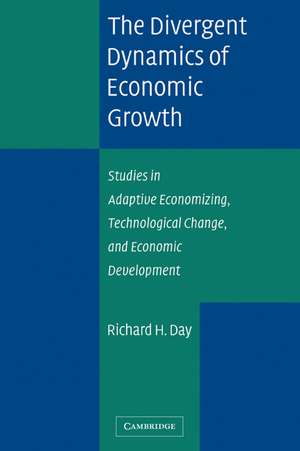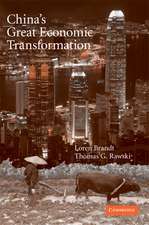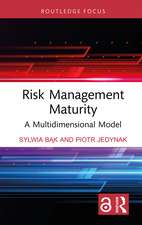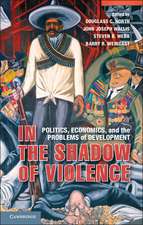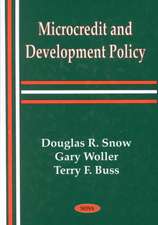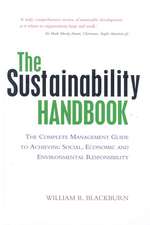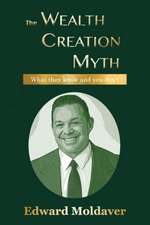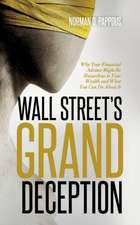The Divergent Dynamics of Economic Growth: Studies in Adaptive Economizing, Technological Change, and Economic Development
Autor Richard H. Dayen Limba Engleză Paperback – 14 feb 2007
| Toate formatele și edițiile | Preț | Express |
|---|---|---|
| Paperback (1) | 322.41 lei 6-8 săpt. | |
| Cambridge University Press – 14 feb 2007 | 322.41 lei 6-8 săpt. | |
| Hardback (1) | 725.25 lei 6-8 săpt. | |
| Cambridge University Press – 12 noi 2003 | 725.25 lei 6-8 săpt. |
Preț: 322.41 lei
Nou
Puncte Express: 484
Preț estimativ în valută:
61.71€ • 64.18$ • 51.71£
61.71€ • 64.18$ • 51.71£
Carte tipărită la comandă
Livrare economică 13-27 martie
Preluare comenzi: 021 569.72.76
Specificații
ISBN-13: 9780521681056
ISBN-10: 0521681057
Pagini: 256
Ilustrații: 46 b/w illus. 4 tables
Dimensiuni: 150 x 228 x 14 mm
Greutate: 0.38 kg
Editura: Cambridge University Press
Colecția Cambridge University Press
Locul publicării:New York, United States
ISBN-10: 0521681057
Pagini: 256
Ilustrații: 46 b/w illus. 4 tables
Dimensiuni: 150 x 228 x 14 mm
Greutate: 0.38 kg
Editura: Cambridge University Press
Colecția Cambridge University Press
Locul publicării:New York, United States
Cuprins
Preface; Acknowledgments and comments; 1. The adaptive, evolutionary theory of divergent economic growth; Part I. Global Trends and Adaptive Economics: 2. Global trends, world models and human adaptation; 3. Adaptive economic theory and modeling; Part II. Technological Change in Agriculture and Industry: 4. The economics of technological change and the demise of the sharecropper; 5. Economic development as an adaptive process: a green revolution case study Richard H. Day and Inderjit Singh; 6. Industrial development and technological change Richard H. Day, Masatoshi Abe, Jon Nelson, William K. Tabb and Che Tsao; 7. An adaptive economizing analysis of Chinese enterprises under alternative reform regimes Richard H. Day, Zhigang Wang and Gang Zou; Part III. Epochal Development: 8. Economic development and migration Richard H. Day and Yiu-Kwan Fan; 9. Instability in the transition from manorialism: a classical analysis; 10. Do economies diverge? Economic development in the very long run Richard H. Day and Oleg Pavlov; Part IV. Toward a General Theory of Development: 11. Economics far from equilibrium; 12. The dialectical republic: toward a general theory of the coevolution of market and state; Index.
Recenzii
'This new book by Richard Day is a very impressive compilation of research records, spanning a period of forty years or so, by him, his former students, and his research associates. The book shows how he has relentlessly explored economies far from equilibria, and to quote from one of his sentences by 'going against the prevailing disciplinary trends of over-reliance on the concept of equilibrium'. In the book, he emphasizes his conviction that economic optimizing and equilibrium analysis by themselves provide an inadequate mental image of the real world. I am in total agreement with him when he focuses on evolving markets, punctuate equilibria, and endogenously generated structural changes.' Masanao Aoki, UCLA
'This well-written book contains Richard Day's achievements in advancing a provocative and interesting point of view toward economics. He asserts that actual economies are never in economic equilibrium, because that implies perfect coordination. Rather, individuals follow habitual routines or attempt to improve their situation through changes based on limited understanding or even act experimentally. Their innovations can cause great harm as well as progress.' Truman Bewley, Yale University
'The nature of economic change is a mightily important issue that the great body of modern economics has not stressed. This very readable volume introduces 40 years of original work on the dynamics of economic growth by an exceptionally creative economist. Professor Day uses recursive models to synthesize classical, neoclassical, and evolutionary points of view and empirically tests his approach on economic sectors where change is rapid and also on epochal changes in social systems. A great oeuvre by an innovative scholar who is not afraid to think about things in the right way.' Thrainn Eggertsson, University of Iceland
'In this new work, Richard Day has capped a distinguished career of contributions to the study of adaptive economic systems. He has provided us with a creative synthesis of traditional microeconomics and the analysis of evolutionary economic change.' Vernon L. Smith, Nobel Laureate, George Mason University
'What Dick Day brings to the growth discussion is an extraordinary combination of breadth of vision and depth of analytical penetration. Readers will experience a sense of intellectual adventure fully appropriate to the grand topic of economic transformation and human progress.' Sidney Winter, The Wharton School, University of Pennsylvania
'This well-written book contains Richard Day's achievements in advancing a provocative and interesting point of view toward economics. He asserts that actual economies are never in economic equilibrium, because that implies perfect coordination. Rather, individuals follow habitual routines or attempt to improve their situation through changes based on limited understanding or even act experimentally. Their innovations can cause great harm as well as progress.' Truman Bewley, Yale University
'The nature of economic change is a mightily important issue that the great body of modern economics has not stressed. This very readable volume introduces 40 years of original work on the dynamics of economic growth by an exceptionally creative economist. Professor Day uses recursive models to synthesize classical, neoclassical, and evolutionary points of view and empirically tests his approach on economic sectors where change is rapid and also on epochal changes in social systems. A great oeuvre by an innovative scholar who is not afraid to think about things in the right way.' Thrainn Eggertsson, University of Iceland
'In this new work, Richard Day has capped a distinguished career of contributions to the study of adaptive economic systems. He has provided us with a creative synthesis of traditional microeconomics and the analysis of evolutionary economic change.' Vernon L. Smith, Nobel Laureate, George Mason University
'What Dick Day brings to the growth discussion is an extraordinary combination of breadth of vision and depth of analytical penetration. Readers will experience a sense of intellectual adventure fully appropriate to the grand topic of economic transformation and human progress.' Sidney Winter, The Wharton School, University of Pennsylvania
Descriere
This book offers a synthesis of classical economics with contemporary concepts of adaptation and economic evolution.
